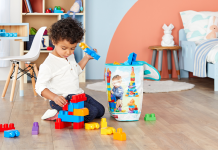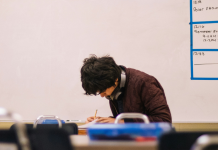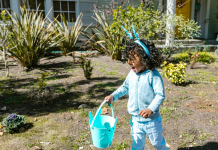The leap from junior primary in Grade 3 to senior primary in Grade 4 – the so-called Intersen Phase – can be a significant adjustment for children. Desiree Hugo, academic head of ADvTECH schools division, offers some practical advice on how to prep your children for this change.
Faced with new subjects, new teachers, new expectations, new routines and new challenges, the move from junior to senior primary can either be both exciting and overwhelming for young learners, and the role parents play in helping their children navigate this step in their academic journey is an important one.
“In Grade 4, they need to start taking greater ownership and responsibility for their own learning, including an increase in workload, homework and assessments, plus they are expected to develop independence,” says Desiree, who encourages all parents to prepare their children for the change by talking to them about how their school days will be different when they move to Grade 4.
“These are a few guidelines that can help ensure your children start the year on a strong footing, ready to perform to the best of their ability and enjoy the exciting challenges ahead!”
Create a consistent routine
Children thrive on structure and predictability, especially during times of change. Establish a regular routine for your child’s daily activities, such as waking up, getting ready, having breakfast, going to school, extra-murals, doing homework, having family fun time, dinner, and going to bed, preferably with a story book. Try to stick to the same schedule on most school days, and make sure your child knows what to do and when to do it. Try to keep deviations to a minimum, so that the rhythm of their daily routine becomes second nature.
 Encourage your child’s social and emotional development
Encourage your child’s social and emotional development
Senior primary is not only about academic learning, but also about personal growth, as your child develops and continues to grow and develop their unique identity. Your child may face various social and emotional issues, such as making friends, dealing with peer pressure, coping with stress, managing emotions, developing self-esteem, and expressing opinions. You can help your child develop these skills by being a good role model, listening to their feelings and concerns, validating their emotions, offering advice and support, teaching them coping strategies, and encouraging them to join extracurricular activities. You can also help your child build positive relationships with their teachers and classmates by communicating with them regularly, attending school events, and resolving conflicts independently and peacefully.
Support your child’s learning
At the start of senior primary, getting into a healthy learning routine is probably one of the most important milestones that will assist your child throughout their educational journey. There may be a wider range of subjects that may be new or challenging for your child. You can help your child learn and master the content by providing guidance, encouragement and feedback. For example, you can review the lesson notes with your child, help them with their homework, quiz them on the key concepts, praise their efforts and achievements, and discuss their mistakes. You can also provide extra resources, such as books, websites, videos, or games, to supplement their learning and spark their interest. But, avoid doing the work for your child or putting too much pressure on them. Let your child work at their own pace and level, and respect their learning style and preferences.
 Support your child’s learning
Support your child’s learning
At the start of senior primary, getting into a healthy learning routine is probably one of the most important milestones that will assist your child throughout their educational journey. There may be a wider range of subjects that may be new or challenging for your child. You can help your child learn and master the content by providing guidance, encouragement and feedback. For example, you can review the lesson notes with your child, help them with their homework, quiz them on the key concepts, praise their efforts and achievements, and discuss their mistakes. You can also provide extra resources, such as books, websites, videos, or games, to supplement their learning and spark their interest. But, avoid doing the work for your child or putting too much pressure on them. Let your child work at their own pace and level, and respect their learning style and preferences.
Celebrate your child’s progress and achievements
The transition to senior primary is a big milestone for your child, and they deserve recognition and appreciation for their hard work and accomplishments. It is important to celebrate your child’s progress and achievements, while at the same time avoiding comparison with others or focusing only on results. Emphasise the process, the effort, mastery and the improvement that your child has made. Consider failure as a first attempt in learning, and support them in building resilience to ongoing relearning.
“Senior primary is an exciting and illuminating period in a child’s life. They continue to build their own identity, learn new skills, and encounter new challenges. This is an important time to children cultivate a love of learning and a growth mindset. Parental and teacher support during this time is crucial, to ensure continued connection while also learning to strike a balance between supporting the child and giving them the room to discover their own strengths and abilities. We want to maximise children’s success and gratification in life.”






